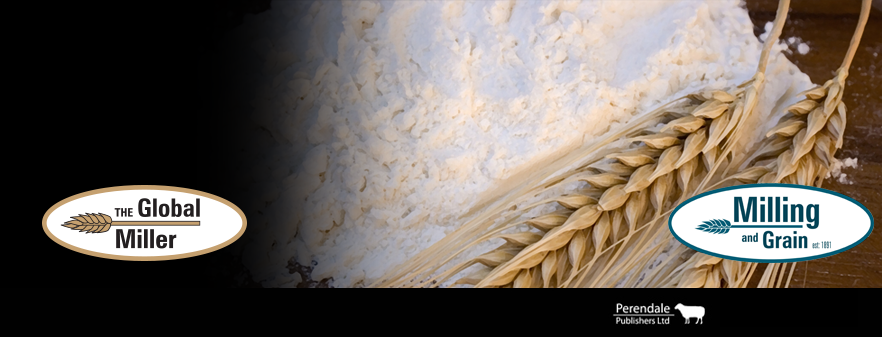April 24, 2024 - Protix, the global leader in insect ingredients for feed and food, unveils the outstanding results of a new Life Cycle Assessment (LCA) conducted by the German Institute of Food Technologies. The figures follow on from impressive numbers published in an earlier assessment conducted in 2022, and demonstrate that Protix's black solider fly ingredients are crushing it again in terms of environmental footprint.
Driven by its mission to help feed the growing global world population while taking good care of our planet, Protix works tirelessly to further reduce the footprint of its ingredients for Petfood, animal feed and fertilisers. The improved results are driven by continuous improvement across operations, genetics and nutritional science.
You may also be interested in:
All Protix products yielded standout results:
- ProteinX insect meal reduces CO2 emissions by 78 percent compared with poultry meal (ProteinX: 0.832kg CO2 eq; poultry meal: 3.8kg CO2 eq). Poultry meal is often used in period and livestock feed.
- LipidX insect fat dramatically reduces land use, using 99.9 percent less than coconut oil (LipidX: 0.0102m2 land use and coconut oil: 12.98m2 land use). Coconut oil is commonly used as a fat source in livestock and aquaculture feed as well as in petfood.
- PureeX insect meat uses a staggering 99.8 percent less water than poultry meat (PureeX at 0.098m3 and poultry meat at 61.13kg m3). Poultry meat is commonly used in petfood as a high moisture protein source.
- Protix's insect grass shows only 0.01kg CO2 eq per kilogram of product.
- Larvae, used as feed for livestock, show 0.198kg CO2 eq per kilogram of product.
Kees Aarts, CEO of Protix, comments: "We take pride in leading innovations within our industry on a pathway to low-footprint-no-footprint proteins. With our previous LCA, we shared the vision that the environmental footprint of our black soldier fly ingredients could be reduced and we have lived up to that promise: the latest DIL figures once again demonstrate an improvement in the footprint of our Protix ingredients. We look forward to translating these LCA numbers into new commercial opportunities to help our customers produce better and greener."
Data to count on
Protix understands the importance of a robust scientific foundation for its products. The company is heavily invested in substantiating its findings and sharing data that manufacturers can translate into compelling claims.
The latest LCA was conducted by DIL, the German Institute of Food Technologies. This is a private, non-profit research provider with around 150 member companies from the food industry and related fields. As in the previous LCA, the results are based on the established and proven IMPACT 2002+ methodology. To further support the robustness of the findings, the results were compared against benchmark results from literature and relevant databases.
Making a real difference
However, Protix's mission extends beyond the numbers and methodologies. The company is driven to create genuine, meaningful change in the food system. The data were taken from the year 2023, with the plant running at designed capacity. Protix is uniquely positioned to calculate with real production data from an industrial-scale facility operating at full capacity. Every kilogram of its products used in petfood, animal feed or organic fertiliser represents a tangible step towards a healthier planet, for Protix, its customers and all of us.
Wings of power
The LCA was carried out on Protix products which are based on the black soldier fly (BSF). Protix selected the BSF as its preferred and sole source of protein following in-depth research in the company's infancy, 15 years ago. The BSF was found to be a superior source of protein for a raft of reasons. Essentially, the black soldier fly is one of nature's most efficient up cyclers.
While these latest LCA data relate directly to Protix insects derived from larvae of the black soldier fly, they also shine a light on exciting potential for the insect industry as a whole to recuse the environmental impact of feed and food.
A high-flying future
There is growing interest in insects as a sustainable source of protein. protix remains at the forefront of developments with new production facilities and international expansion high on the agenda. Kees Arts concludes: "This is an exciting time for change in the petfood, animal feed and fertiliser industries and we are scaling up our operations to meet demand. We are confident that we can achieve further outstanding figures in the future as we invest in improved genetics and build on our already deep knowledge of insect farming. When feedstock legislation changes, this will be a further driver of a lower footprint for our beloved black solider fly. A tiny creature, but an impactful eco-warrior."
For more information, visit HERE.
The Global Miller
This blog is maintained by The Global Miller staff and is supported by the magazine Milling and Grain
which is published by Perendale Publishers Limited.








